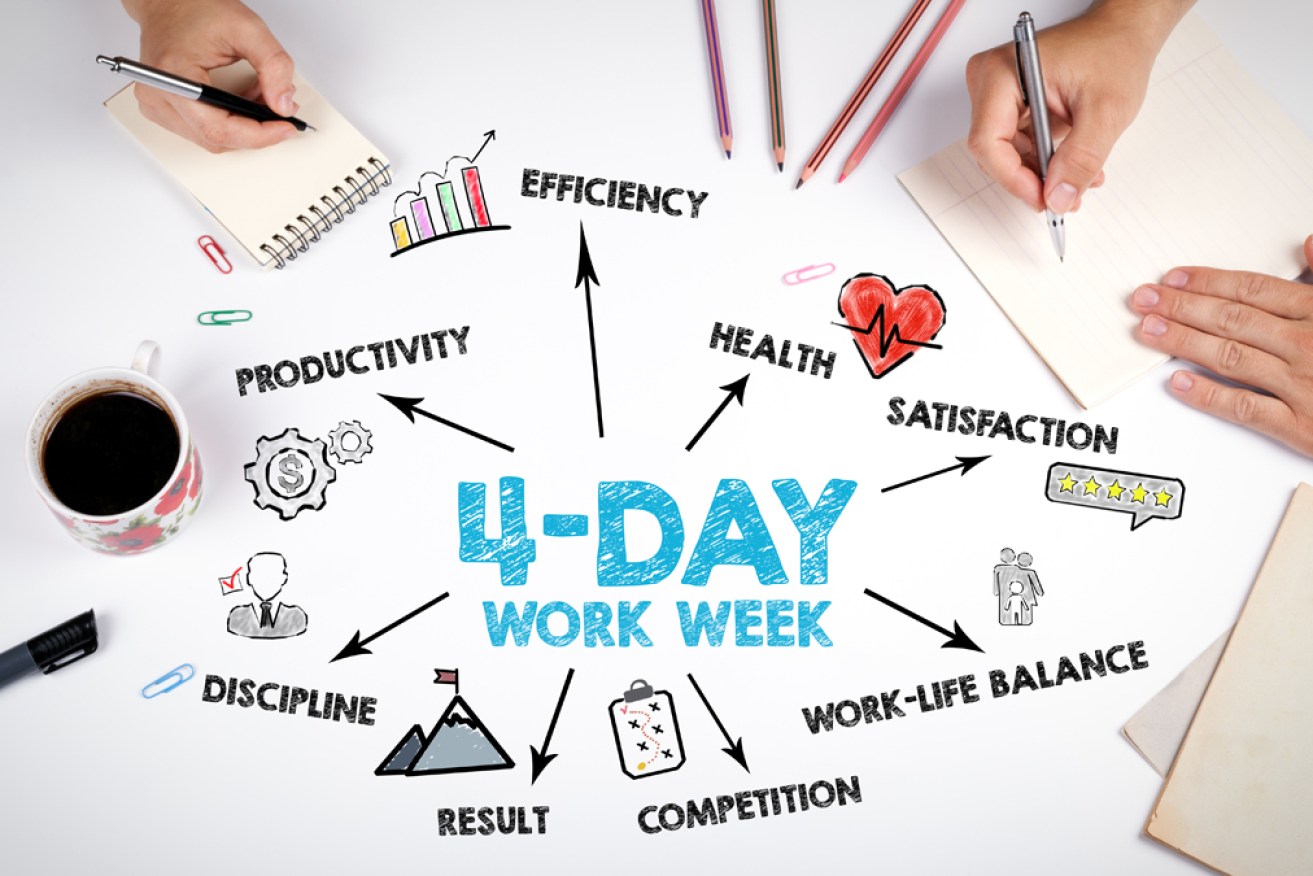Experts warn that a four-day week is no cure-all for workplace problems


Working one less day a week doesn't mean a decrease in issues with work. Photo: Getty
The push for a four-day work week is gaining momentum in Australia and overseas.
But it comes with a warning that, while there are potentially great benefits, a shorter working week won’t cure every workplace problem.
This year in Australia, organisations such as Oxfam and Bunnings have completed enterprise deals introducing a four-day work week for some full-time staff.
Just last week, a parliamentary committee in the ACT recommended the territory’s public servants be allowed to trial a four-day work week.
A four-day week means workers collect the same pay for only four days of work – and are expected to maintain the same level of productivity.
Bunnings controversy
Bunnings, for instance, attracted some controversy for its trial that allows staff to spread their 38 hours of work across four days, or do a nine-day fortnight.
However, 4 Day Week Australia, a major proponent of the trend towards shorter working weeks, said the Bunnings deal was really a “compressed work week” because employees worked the same hours.
Studies show that companies that have trialled shorter work weeks had overwhelmingly positive results, from increased worker happiness to increased revenue.
At a HubSpot Inbound conference debate on the four-day work week, Second Mile CEO and co-founder Hannah Lee said one of the best ways employers could respect employees was by respecting their time.
Employees once found their main sense of purpose in work, but they were now seeking more purpose outside of work, after the pandemic prompted many to prioritise their personal wellbeing, she said.
“The No.1 thing that employees are looking for in the workplace isn’t a sense of community, it’s not a sense of connection and relationships,” Lee said.
“Actually, work-life balance is No.1 consistently over the past five years. And then No. 2 is benefits and pay.
“I think we’re seeing a monumental shift in what employees want from employers.”

Pam Nemec (middle) and Hannah Lee (right) hold different views on the four-day work week. Photo: TND
No fix-all solution
But flexible working deals or shorter work weeks are unlikely to be the solution for all the problems that workplaces face.
Pam Nemec, CEO of Pam Nemec Consulting, said more needed to be done to get to the root of workplace problems.
“You get your four days that you have to go into work and you get one day off,” Nemec said.
“But if those four days are chaotic, if they lack communication, if they are not engaging you … you are not able to do your best work, and nor are you even recognised for it if you do.
“[Company leaders should] look at it all, but don’t forget that if you aren’t … leading, and you won’t communicate in the right way, none of these great benefits are ever going to actually improve your [employees’] performance.”
Also speaking at HubSpot Inbound, Civility Partners founder and CEO Catherine Matisse said handing staff flexible working options but failing to resolve issues such as excessive workloads could lead to burnout.
“The organisation [could be] telling you … you should work for 15 hours [a day], and then let’s leave early on Friday,” she said.
The New Daily attended Inbound courtesy of HubSpot








